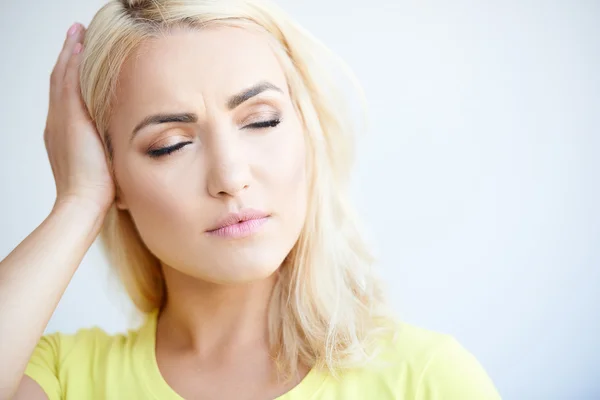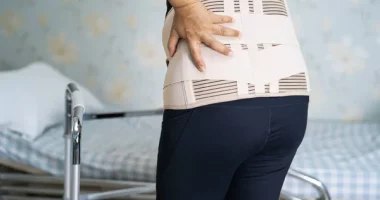Vitamin D plays a crucial role in the health and well-being of women over 50. As women age, maintaining adequate vitamin D levels becomes increasingly important for bone health, immune function, and managing menopausal symptoms. Raj Dasgupta, MD, chief medical advisor for Sleepopolis, explains that vitamin D is essential for menopausal women because it supports calcium absorption, which is vital to prevent osteoporosis and bone fractures—a common concern after menopause.

Why Women Over 50 Need Vitamin D
Vitamin D is an essential nutrient that becomes increasingly critical as women age, especially after 50 and during menopause. Raj Dasgupta, MD, chief medical advisor for Sleepopolis, explains that as women enter menopause, their bodies undergo hormonal changes, particularly a decrease in estrogen, which impacts vitamin D metabolism and receptor activity. This interplay heightens the risk of vitamin D deficiency, which can exacerbate bone loss and other health issues common in post-menopausal women. Maintaining adequate vitamin D levels helps support bone strength, immune function, mood regulation, and overall quality of life during this transitional phase.
Normal Vitamin D Levels for Menopausal Women
Doctors generally consider vitamin D deficiency as having blood levels below 20 nanograms per milliliter (ng/mL), with insufficiency between 21-29 ng/mL. For menopausal women, maintaining levels above 30 ng/mL is often recommended to ensure proper calcium absorption and bone mineralization. Experts disagree on what the “right” amount of vitamin D is, although a blood test result of 20 ng/mL is widely considered to be the minimum for good bone health, particularly for menopausal and post-menopausal women who are at a higher risk of fractures and decreased bone density. The daily vitamin D intake should be between 1,500 and 2,000 international units (IU), though individual needs can vary based on factors like sun exposure, body weight, and existing health conditions.
Vitamin D Deficiency Symptoms to Watch For
Benjamin Barlow, MD, chief medical officer of American Family Care, highlights that vitamin D deficiency symptoms can be subtle initially but grow more pronounced without attention. Key symptoms women over 50 should watch for include:
- Bone and lower back pain: This often misattributed pain can stem from weakening bones due to low vitamin D, intensifying osteoporotic risks.
- Fatigue and tiredness: Unexplained fatigue not linked to lifestyle or other illnesses may indicate insufficient vitamin D, as it affects muscle function and sleep quality.
- Muscle aches, cramps, and weakness: Vitamin D receptors play a role in muscle health; deficiency increases vulnerability to falls by reducing muscle strength.
- Frequent infections and slower wound healing: Vitamin D supports immune responses, and low levels can lead to increased susceptibility to colds, flu, and other infections.
- Mood disturbances: Depression, anxiety, and irritability are associated with vitamin D deficiency, possibly linked to its role in brain function and serotonin regulation.
- Hair loss and pale skin: Some women notice hair thinning or changes in skin tone as subtle early indicators.
These symptoms often overlap with menopausal symptoms, making awareness and testing crucial to differentiate and address vitamin D levels appropriately.
What to Do If You Have Low Vitamin D Levels
If blood tests reveal low vitamin D, the first step is usually lifestyle modification. This includes:
- Increasing safe sun exposure to stimulate natural vitamin D synthesis in the skin.
- Incorporating foods rich in vitamin D, such as fatty fish (salmon, mackerel), egg yolks, beef liver, and fortified foods like cereals and milk alternatives.
- Discussing with healthcare providers about vitamin D supplements, especially if dietary sources and sunlight are insufficient or if absorption issues exist.
Vitamin D supplementation should be personalized, avoiding excessive intake which might cause toxicity. Regular monitoring of blood levels is recommended to adjust doses and ensure optimal health outcomes.
Are Supplements Right for You?
Supplements can be a valuable aid, particularly for women with limited sun exposure, absorption problems, or higher requirements due to menopause. However, their use should be guided by healthcare professionals after proper testing. Overuse without medical supervision can lead to side effects such as hypercalcemia. A balanced approach combining diet, sunlight, and supplements tailored to individual needs offers the best protection against deficiency and its complications.
In summary, women over 50 should be vigilant about vitamin D because of its vital role in reducing the risk of osteoporosis, enhancing immune defense, and mitigating menopause-related symptoms. Early recognition of deficiency symptoms like bone pain, fatigue, and mood changes, followed by appropriate interventions, can greatly improve health and quality of life in this demographic. Consulting healthcare providers for testing and guidance on supplementation can ensure safe and effective management of vitamin D levels.
Also Read | Kidney Stone Warning Signs That Demand Immediate Attention










